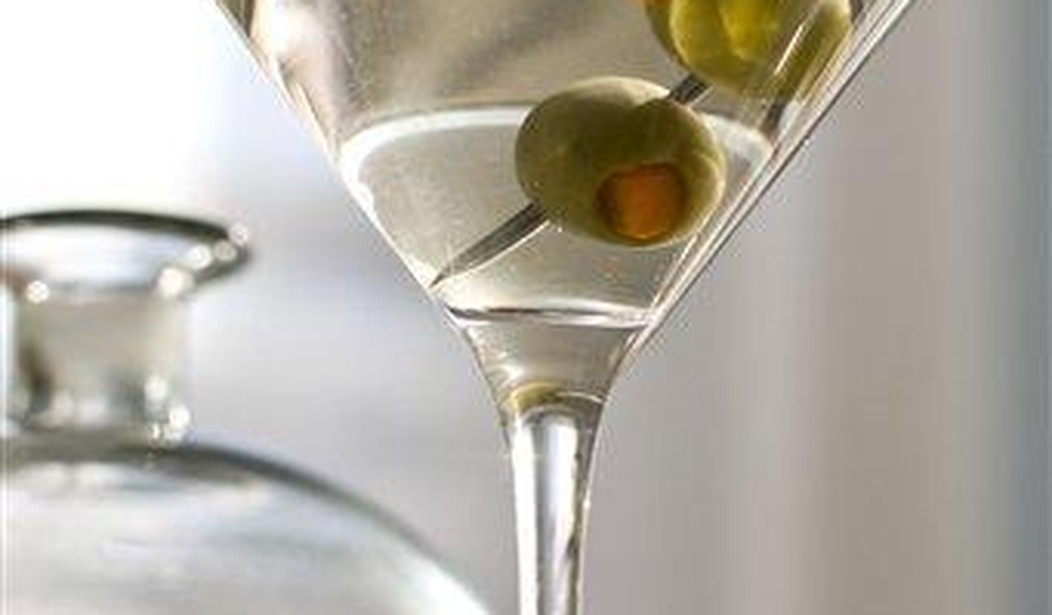As more and more people have begun playing with ChatGPT, the AI chatbot from OpenAI, the public is finding more creative ways to use it. Some are asking the bot to invent new things. Recently, a user who is into crafting asked the bot to invent a new knitting pattern. It complied, but the result was a thin strand of knitted fabric only three threads wide. That wasn’t much of a success, but the crafter expressed her relief that AI “won’t be putting me out of business” any time soon.
In a more successful experiment, a brewery asked ChatGPT to create a new flavor of beer. The result was named AI-P-A and they are currently selling it to the public. (You brewers and beer aficionados will get the joke in the name.) It’s apparently quite popular.
The beer experiment gave me an idea since I’m a person who always enjoys a good cocktail or five. So I decided to see if it could come up with a gin cocktail better than the classic martini. I set forth some very loose parameters for what the recipe could or should include and asked it to come up with a catchy name for the drink and a marketing slogan. Here is the exact request I entered into the interface:
“Please invent a recipe for a new cocktail that is not currently served in the United States. The primary liquor base should be gin, but other alcoholic and nonalcoholic beverages may be used along with garnishes of any type. Please create a catchy name that would get people interested in trying it and a catchy marketing slogan to advertise it.”
In a matter of moments, ChatGPT complied and delivered a recipe for something called a “Gin Fizztastic.” It had cooked up a marketing slogan reading, “Fizztastic gin cocktail that will take your taste buds to new heights! Get Fizztastic with our new gin cocktail – a refreshing blend of citrus, honey, and sparkling water that will tickle your taste buds and leave you wanting more!” Have a look at it and we’ll break down how well the bot did and the potential problems that turned up.
Sure, here’s a recipe for a new gin-based cocktail:
Name: Gin Fizztastic
Ingredients:
2 oz gin
1 oz fresh squeezed lime juice
1 oz honey syrup
2 oz sparkling water
1 egg white
A few dashes of orange bitters
Ice
Lime wheel for garnish
Instructions:Fill a shaker with ice.
Add gin, lime juice, honey syrup, egg white, and a few dashes of orange bitters.
Shake well until frothy.
Add sparkling water and gently stir.
Strain into a chilled glass.
Garnish with a lime wheel.
I don’t have much experience when it comes to “fancy” drinks. In reality, once you go beyond a martini or a highball, I’m pretty much lost. But I have to admit that when I looked at that recipe it seemed entirely reasonable. I don’t personally want an egg white going into anything that doesn’t involve a frying pan, but how could ChatGPT have known that? I can’t take points off there. But I went ahead and made one and it really wasn’t bad at all. I mean, I’m not going to switch from martinis for this and the drink is a time-consuming pain in the butt to prepare, but it seemed like it might sell.
But that’s when a creeping suspicion came over me and led me to discover something that those of you who frequent high-end watering holes already figured out. Knowing from all of my experience testing this bot how prone ChatGPT is to plagiarism, I went and did a search for a recipe for a “Gin Fizztastic.” I did not find one, so perhaps this is a truly unique recipe that the bot created. But I did almost immediately find a recipe from the Bartender’s Guide for a classic “Gin Fizz.”
2 ounces gin
3/4 ounce freshly squeezed lemon or lime juice
3/4 ounce simple syrup, 1:1 ratio
1 small or medium egg white, optional
2 ounces soda water, or to taste
Lemon peel, for garnish
Feel free to have a laugh at my expense if I was the last person in the civilized to not have heard of a gin fizz, but here we are. So did ChatGPT simply steal the recipe from something else in its library and change the name slightly? Well… not quite, I suppose. It specified lime juice while the original allow for lemon as an option. Also, it bumped up the juice from 3/4 of an ounce to a full ounce. It replaced the simple syrup with honey syrup, which would definitely change the taste profile a bit. And instead of a lemon peel as a garnish, it called for a wedge of lime.
I should also note that ChatGPT calls for “gently stirring” the drink after adding the sparkling water to the glass. The traditional recipe calls for simply “topping” the drink with soda water after pouring. The difference is subtle, but for true, highbrow cocktail snobs it would be a notable difference.
But it’s still basically just a slightly more diluted gin fizz that leans a bit more heavily to the lime side and has a shot of honey, right? But it’s not an exact match and the name is unique (though very similar) as far as I can tell. So did ChatGPT really create a unique cocktail recipe as I asked, even if it just stitched together pieces of other recipes in its library? The reader can be the judge, but I think I’m going to have to grudgingly say yes. I was originally waiting to see if it called for adding sardines and dish soap or something else truly bizarre and undrinkable, but this is a legitimate drink that you could probably serve up at a bar and get a tip for your trouble. Score one round for ChatGPT.







Join the conversation as a VIP Member